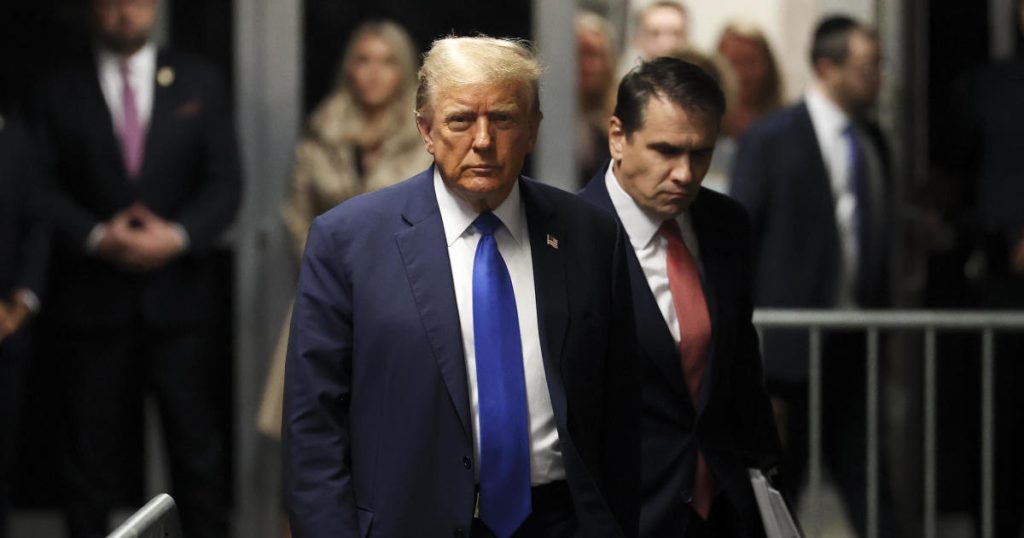The Supreme Court is set to decide whether former President Donald Trump is entitled to immunity from criminal prosecution for actions taken while in office. The case, known as Trump v. U.S., stems from allegations that Trump engaged in an unlawful scheme to overturn the results of the 2020 election. A ruling in Trump’s favor would end the prosecution, while a decision against him would allow proceedings to continue, potentially affecting the 2024 election.
Trump’s attorneys initially raised the issue of presidential immunity last fall, arguing that he is entitled to protection from prosecution for official acts to ensure presidents can serve without fear of future legal action. However, prosecutors with special counsel Jack Smith’s team opposed this claim, stating that a former president can be investigated, indicted, tried, and convicted for actions committed while in office. The case ultimately made its way to the Supreme Court for a final decision.
The case moved through various stages of the legal system, with district court judges and the U.S. Court of Appeals ultimately ruling against Trump’s claim of absolute immunity from prosecution. The appeals court judges unanimously decided that Trump was not entitled to broad immunity as a private citizen. Trump appealed to the Supreme Court for emergency relief, arguing that his immunity was crucial for the functioning of the presidency. Special counsel Smith urged the justices to uphold the appeals court ruling and move forward with the trial.
The Supreme Court agreed to hear arguments in Trump v. U.S. to determine the extent to which a former president is entitled to immunity from criminal prosecution for actions taken while in office. Trump’s lawyers argue that immunity is necessary to protect the presidency’s independence, while the special counsel contends that Trump’s actions to stay in power after the 2020 election were outside the duties of his office. The outcome of the case is expected by the end of June, with potential implications for future presidents and the rule of law.
The case raises important questions about the limits of presidential immunity and the accountability of former presidents. It also highlights the intersection of legal and political issues, particularly in the context of a potential return to office for Trump in the 2024 election. The Supreme Court’s decision will have significant implications for the balance of power between the executive and judicial branches, as well as for the integrity of the legal system and democratic governance. These considerations make Trump v. U.S. a landmark case with far-reaching consequences for the future of American politics and governance.


